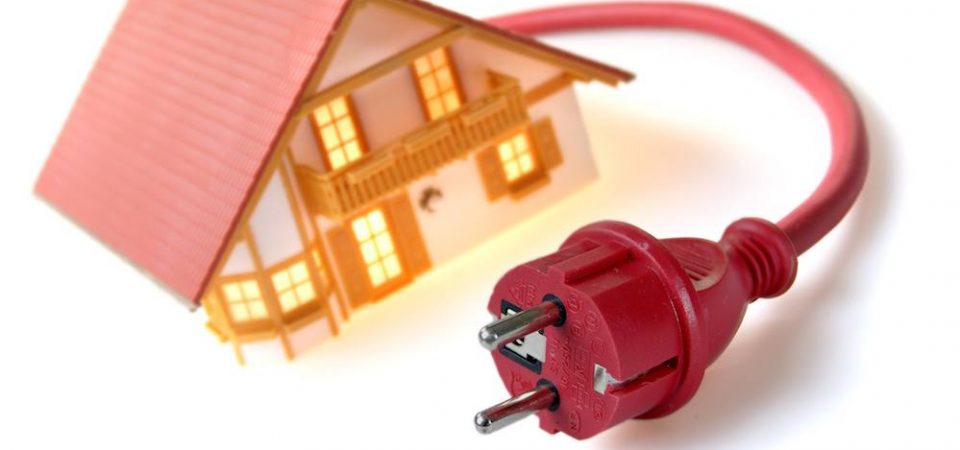
It is time to switch energy contract
COVID-19 has cast a shadow over the stock markets and energy prices are feeling the effects: they are in freefall. For some of you, this is just the right time to change your electricity or gas contract. You could save a considerable amount. Find out what to do.
Contents:
- What lies behind the fall in energy prices?
- What about the total amount of the energy bill?
- What should you go for: a fixed or variable rate?
- Annual fee, termination fee… What does the law say?
- How do I switch energy contract?
Consumers who took out their current contract between June 2018 and December 2018 (or if the contract was renewed during this period) are targeted in particular because they signed at a time when prices had rocketed. Since then, gas and electricity rates have collapsed.
“In December [2019], one megawatt hour (…) cost between € 45 and € 50. Now, it costs between € 35 and € 40. So obviously, if the suppliers are paying less for their energy, you will pay less, too.”, says journalist Caroline Sury.
[sc name=”comparer-default-en”]
What lies behind the drop in energy prices?
In general, a drop in prices occurs on a seasonal and recurring basis but this time, the difference is greater than usual. More striking still: it is persisting. This is due among other things to favourable weather conditions and an exceptional economic situation caused by the COVID-19 crisis.
To understand more clearly why it is particularly advantageous to switch energy contract just now, let us recap the economic context.
After uncertainty in 2018 due to the shutdown of several nuclear power plants, calm returned to Belgium in 2019. In fact, most of the nuclear power plants are up and running again and the production of renewable energy has reached new record levels. As for gas, the price has fallen continuously (or almost) since January 2019.
2020 and the coronavirus crisis: energy prices have fallen drastically
In theory, price falls are cyclical. So after the drop of 2019, it would not have been surprising to see energy prices rise again, especially given the imminent end of nuclear power in Belgium. But that was without the health crisis provoked by the coronavirus which has caught everyone unawares and swept aside all the forecasts. Results:
- The price of oil has collapsed and as we know, the energy markets affect one another. So this fall has put pressure on electricity and gas prices, dragging them down too.
- Electricity consumption is down overall across Belgium, due to the lockdown and the reduction in economic activities.
- Lower electricity consumption means less production. So the gas plants have had to be scaled back.
In addition, if we look at the weather, the winter of 2019-2020 was one of the mildest ever recorded in Belgium. So gas consumption fell back again this year. As for sunshine, the early days of spring 2020 were exceptionally fine. This enabled particularly good photovoltaic productivity for those with solar panels.
With energy production more than sufficient and demand dropping, electricity and gas prices are inevitably falling. So this is the right time to switch energy contract to save € 350 on average. The energy market conditions are unpredictable, as we can see at the moment. So it’s worth seizing the opportunity now, when prices are at their lowest.
What about the total amount of the energy bill?
There is all sorts of information on your gas and electricity bills and it isn’t always easy to understand everything at first glance: energy price, network costs, taxes and surcharges, etc.
The first part of the bill, which shows the energy price, is the only one which you can really influence. It indicates the price per kWh of gas or electricity as well as the fee, which are both set by the energy supplier. This part accounts for approximately half of the total amount of your bill. In short: if you divide the energy price by two, this doesn’t mean that the total amount of your bill will be divided by two. It will be reduced by 25 %. And bear in mind that everything depends on the length of the period during which the prices fall, as well as the period when the reduction occurs. A price fall in winter will have a greater impact than a price fall in summer.
Read our guide to better understanding your energy bill.
What should you choose: a fixed rate or a variable rate?
Most energy suppliers propose several types of contract for your electricity supply. For example, consumers usually have the choice between green electricity, a 100% web offer or a standard offer. But regardless of these specificities, there is one criterion that you must take into account: the rate applied in your contract. As this may be fixed or variable, it not only influences the cost per kWh and the subscription to the electricity supply, but also the customer guarantee.
A fixed tariff ensures the same price per kWh of electricity for the entire duration of the energy supply contract. In exchange for this security, suppliers often charge a higher yearly subscription fee. In comparison, a variable tariff is indexed every quarter. A downward or upward trend that consumers usually discover when they receive their annual statement. The risk here is that if there is an increase, they have to pay a relatively high supplement.
The same is true for gas supply contracts. If you already have a variable price contract, it may be time to think about taking out a fixed price contract as the tariffs are currently lower. Do a simulation using our price comparison tool: it is easy, quick and free.
Annual fee, termination fee… What does the law say?
To cover their administrative costs, energy suppliers may charge a yearly fixed fee (or subscription fees). According to CREG, these costs could be related to billing or customer care services.
There are different ways of billing the fixed fee:
- Either according to the actual duration of the contract. For instance, you have taken out a contract with an annual fixed fee of € 50. In the end, you decide to switch supplier after six months. Since the fixed fee is billed on a pro rata basis according to the contract’s actual duration, you will only have to pay a fee of € 25;
- Or a flat fee per year started. For instance, you have taken out a contract with an annual fixed fee of € 50. You eventually decide to switch supplier after six months. Since the fixed fee is billed per year started, the supplier will ask you to pay the € 50 fee;
- Or, for some fixed-term contracts of more than one year, per year started, only for the first year.Then for the following year, the fee is billed:
- per year started but by reducing the fixed fee as of the second year;
- on a pro rata basis according to the number of days supplied as of the second year;
- in two parts as of the second year: one fixed part per year started and one pro rata part according to the number of days supplied.
Compare, switch but don’t forget this aspect if you decide to switch energy contract more often to continuously take advantage of the best prices.
Beware! Energy suppliers can’t charge exit fees.
Since 13 September 2012, the date when the law on the abolition of exit fees came into force, all private consumers have been able to switch supplier at any time without paying any exit fees. However, they must respect the period of notice which is stipulated in the contract. This is usually one month.
If an energy supplier tries to charge you a fee, you can remind them of the law. If they insist, you can contact the Energy Mediation Service.
[sc name=”comparer-blue-en”]
How do I switch energy contract?
Switching your energy contract or supplier is easy and free, and you are guaranteed that your gas and/or electricity supply won’t be cut off. In Belgium, only 10 to 15 % of consumers regularly switch energy contract.
1. The first step towards switching energy contract is to compare prices.
Using our gas and electricity price comparison tool, you get a complete picture of the market with continuously updated prices. This way, you can easily see which is currently the best contract for you, taking into account your region, your consumption and your type of electricity meter.
2. The second step is to take out a new energy contract.
You can do this directly on our website Energyprice.be. It is quick, free and you benefit from personalised support before, during and after switching contracts.
3. And finally, don’t forget that the energy market and supplier tariffs are constantly changing.
It is important to remain vigilant and compare supplier prices at least once a year. This means you can maintain a competitive price and make significant savings if better offers turn up. Often, the difference can be as much as several hundred euros on an annual basis.
Want to find out more about how the comparison tool works? Or do you need a hand to help reduce your electricity bill? Our advisers are available on 0800 37 369, Monday to Friday, from 9.00 am to 6.00 pm
Not the right time for you? Subscribe to our monthly newsletter to stay informed of the best deals on offer.
[sc name=”call-me-en”]
Also read on our blog

Natural gas consumers, you have been warned: by 2030, you will all be supplied with rich gas. Does the idea seems attractive to yo…

In Belgium, any person who owns an electricity or gas meter is required to sign a contract with a supplier. Even if their house is…

Comprendre sa facture de gaz ou d’électricité n’est pas forcément une chose aisée. Le tarif que vous payez est divisé …
